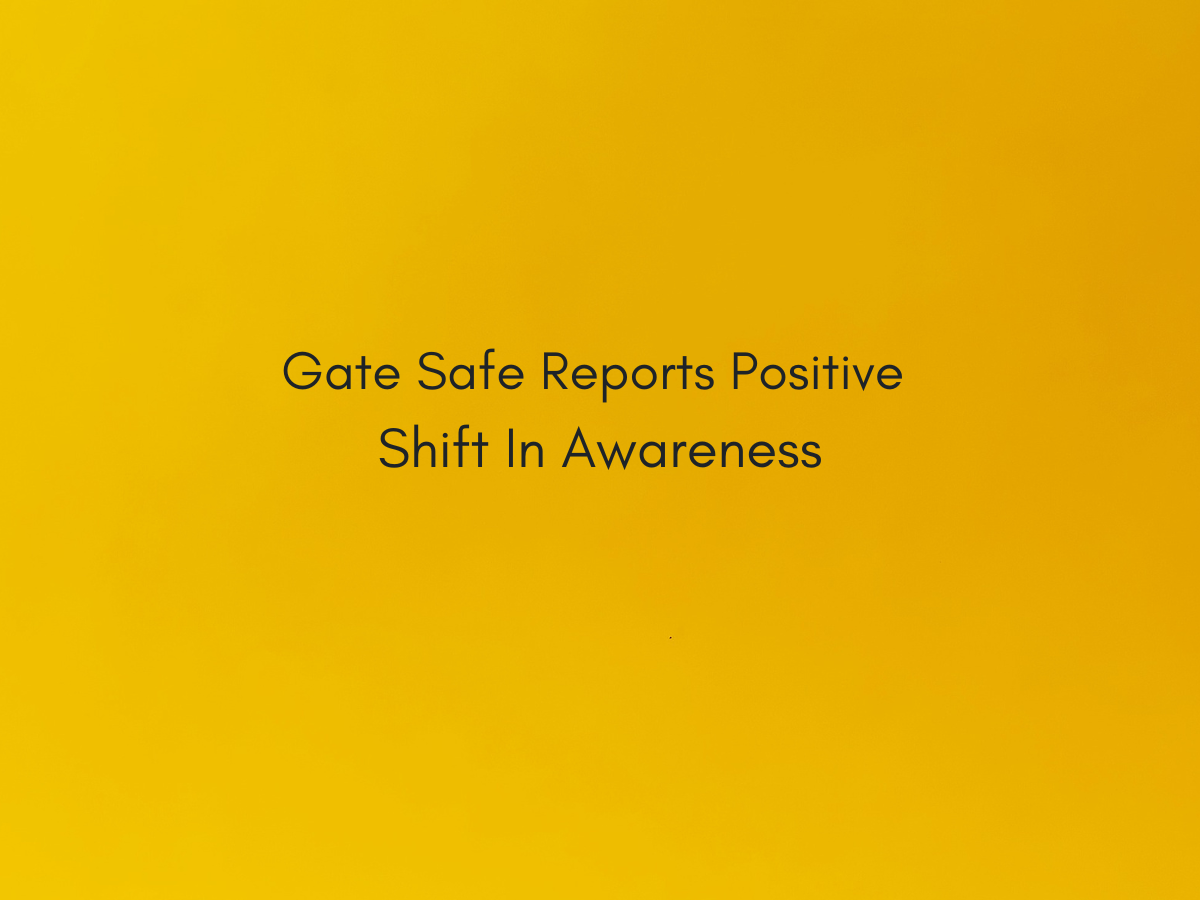At a time when there is so much negative reporting, Gate Safe is kicking off 2023 with some good news …
After over 13 years of delivering training to installers, Gate Safe is beginning to receive reports which provide clear evidence that the industry is starting to effectively self-police and take a strong stand against unsafe automated gate installations.
With over 2,700 trained installers on the Gate Safe register, updates are regularly filtering through which demonstrate that installers are increasingly taking a lead with reference to informing customers when a gate represents a serious risk of injury or worse. The improved knowledge in the field is enabling the industry to present a more united front in its response to any gate installation that clearly flouts the guidance which is acknowledged as best practice.
Examples which support this include:
Scenario 1
An installer posted on a specialist engineers group on Facebook details of a poor quality bracket which had been fitted by an electrician, using an automated gate kit. The final installation featured no safety and the fix of the bracket to the wall was inferior, causing the gate to fail by pulling the bracket from the wall.
The installer had submitted a quote to replace and upgrade the gate with the legally required safety. The response from the customer was that they only wanted to pay for the gate to be fixed and were not interested in footing the bill for any of the recommended safety features.
The installer’s response (quite rightly) was to walk away from the job, leaving the customer out of pocket and with no powered gate.
Better to sacrifice a sale rather than risk a life …
Scenario 2
An elderly lady called the Gate Safe technical help line. Her late husband had been an electrician and had fitted an automated gate at their home. Since his passing, the lady was experiencing problems finding someone to replace the intercom onto a new post.
Although she had contacted various installers and electricians to see if they would undertake the works, she had met with the same response each time. None of the trade contacted were prepared to take on the project without first insisting that the installation was made safe. Since the customer was reluctant to incur costs before addressing the original request to replace the intercom, this meant that the customer was left without a powered gate, because everyone refused to touch an unsafe gate system.
Unfortunate for the customer but the right course of action from the installers / electricians who had been contacted, both in terms of protecting the customer and anyone using the gate – and in safeguarding their reputation in the event of an accident.
Scenario 3
An electrician called the Gate Safe technical help line to ask for guidance regarding the setup of a gate. The electrician in question had initially accepted the assignment but then began to realise the scope of the project and the extent of the works that would need to be completed to ensure the safety of the installation.
Gate Safe explained the legal implications of installing an unsafe system and the electrician came to the right decision which was to sub-contract the works out to a suitably trained and competent gate installer.
Making money on a job should never be the over-riding priority. Being confident that an installer is delivering a safe and legally compliant automated gate is what matters most.
Commenting on this positive change, Gate Safe founder Richard Jackson says,
“The above scenarios all ended with the right outcome. There is definitely an improved understanding within the trade, especially in relation to the dangers associated with automated gate kits. The regular calls to our technical help line by installers who have completed the training and wish to ‘sense check’ a particular issue with an independent and impartial expert, further underpins the fact that installers are making great strides in raising standards.
However, this is not the time to become complacent. While these are all examples of installers arriving at the right decisions, the industry must remain resolute in its commitment to continue to educate customers on the protocols that must be followed to achieve a safe gate.
Automated gates should only be installed and maintained by a professional who has undergone the relevant training to understand how to install a safe gate and how to mitigate any risks. We urge installers to continue to protect their industry and their reputation, by sharing this message far and wide – and making sure their training is up to date! Gate Safe recommends refresher training every two years as a minimum …”.
